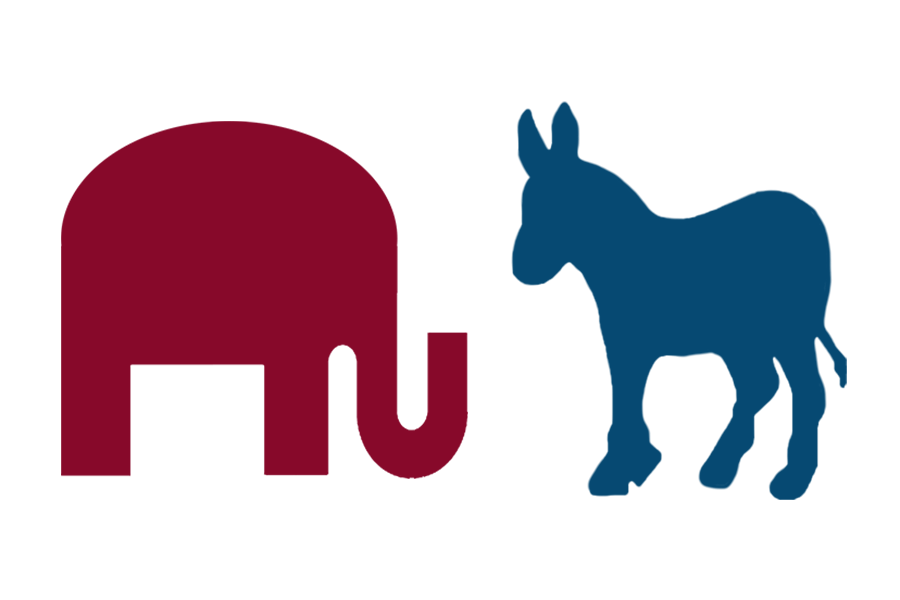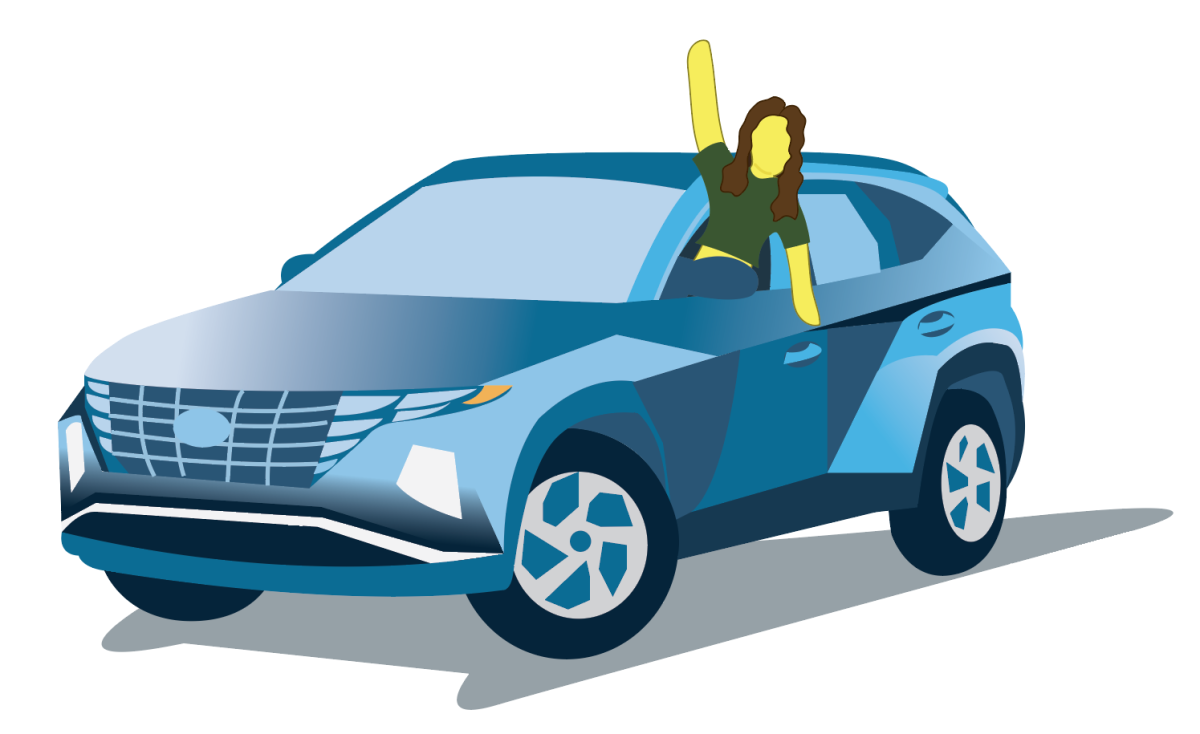Political Polarization
Radical division in government creates tension between different belief systems
Polled through Google forms, 534 students responded to questions regarding their personal political stances, consisting of several demographics.
January 4, 2019
Headline after headline grows more and more bizarre, provoking heated arguments between both sides as people jump to defend their beliefs and the decisions made. Others stay silent, choosing to ignore the seemingly chaotic world of politics.
The continuing polarization of politics is a cause of fright, as people begin to question why the two parties have become so divided ideologically.
“There used to be a lot more of a middle ground and now it’s just very radical on both sides,” senior Rylee Holder said. “It’s not that everyone is radical on both sides, it’s just that the news that you see and everything on social media makes the extremes so much more extreme.”
Junior Ashlyn Dahl believes that the association of beliefs to a specific party encourages further polarization.
“[A] lot of people hold their political beliefs very personally,” Dahl said. “I believe you can align with a party but still have beliefs that might fall in or out of the range of a party and [that] there’s a lot discourse that can be had even within one party itself—just because you align with Democrats or Republicans doesn’t mean you have to have a certain belief.”
According to AP Government teacher Dalton Pool, divisive stances on political issues makes policymaking difficult, as it creates a lack of willingness to compromise.
“[Polarization makes it] seem like the only way that things can get through Congress is if one party controls both houses and the presidency, since the president has the power to veto,” Pool said. “It makes it hard to pass meaningful legislation because most meaningful legislation is passed with some sort of compromise.”
Freshman Chris Thompson chooses not to align with either party, believing that both sides have become too extreme.
“In general I think [polarization of politics] just causes more division between people,” Thompson said. “If I think that this is right and you don’t, you’re instantly my enemy. It just creates an us and them.”
This kind of behavior has become evident across the country, with people taking hostile stances at rallies, marches, on social media, and in everyday conversation. Dahl notes that political discussion at Bowie can be difficult.
“I’m personally in debate and so we have a mix of political beliefs,” Dahl said. “We talk about politics a lot so we become really good about being able to discuss it respectfully. However, there are groups of people at Bowie who are very one-sided and aren’t interested in hearing other types of opinions.”
The endless information available to the public through the Internet should make staying informed easier, however often times it has the opposite effect as people seek out news that supports their bias.
“It’s not that there isn’t quality journalism out there, it’s that people have the option of selecting where they get their news from a lot more than they used to,” Pool said. “It seems like people tend to search for the sources that agree with them. That’s where these bubbles are created, people can kind of shelter themselves from the news that they don’t want to hear and hear a lot of the news that they want to hear.”
One cause of polarization is gerrymandering, which is the manipulation of district voting lines to favor one party or the other, making elections less competitive.
“It’s vital that elections are competitive because then you have to appeal to both sides,” Pool said. “Now, with all these gerrymandered districts, usually the Republicans are always going to win or the Democrats are always going to win. Then the real competition is in the primaries and you’re appealing more to the base of parties, and that usually leads to a bigger divide between the two parties.”
With the two parties growing apart, Thompson believes moderation could be found in a competitive third party.
“One of the things that I’ve thought about before is having more than just two parties, because that’s what a lot of democratic countries have so that it’s not just two parties that hate each other, you have multiple options,” Thompson said. “We do kind of have that here with the Green Party and the Libertarian party, but they can’t do anything, they’re way too small.”
Pool believes that the voting trends show that people are pushing for a more moderate government. He points to a backlash against corporate money swaying politics and the candidates running proudly without such funding.
“Whenever you take that out of the game, elected officials start actually listening to people, [and] I think that creates a government that’s at least responding to what the people want,” Pool said. “Now I don’t know if that’s going to solve the split in ideology between what the people want, but when government does stuff for the people, usually that brings together both sides and aligns the ideology.”
Many social media sites have become a battleground over political issues, and while this can be useful for fostering discussion, oftentimes it quickly sways from staying civil.
“[Social media is] where everyone gets into these big fights, instead of taking it up with their congressmen, who they could call to actually have action taken on it,” Holder said. “It’s just grown adults having fights about it on Twitter for the world to see.”
Although seeing such behavior and keeping up with the news can become mentally exhausting, it’s important to stay informed.
“If we don’t like it, it’s our responsibility within a democracy to stand up and say we don’t like it and demand more or better from our representatives,” Pool said. “If you’re going to live in a functioning democracy, you have to be informed and you have to participate. If you aren’t either of those things, as discouraged as you might be, you don’t have a right to complain.”
Check out this in-depth regarding the reasoning for an anonymous poll conducted that regarded political stances








